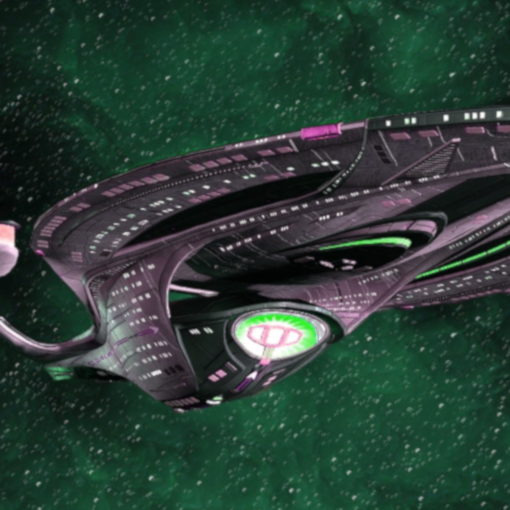Actual poster from 1917 that made me laugh. A lot.
Also, those motherfuckers are measuring the weight of those balls in kilograms, aren’t they?
From John Bazell “In metric, one milliliter of water occupies one cubic centimeter, weighs one gram, and requires one calorie of energy to heat up by one degree centigrade—which is 1 percent of the difference between its freezing point and its boiling point. An amount of hydrogen weighing the same amount has exactly one mole of atoms in it. Whereas in the American system, the answer to ‘How much energy does it take to boil a room-temperature gallon of water?’ is ‘Go fuck yourself,’ because you can’t directly relate any of those quantities.”
But we’re supposed to use Joules, not calories
I believe the calorie is a derived unit while the Joule is a base unit.
Somebody correct me if I’m wrong.
The calorie used to be the base unit, until we released in the 19th century “wait, heat isn’t a gas” and threw out caloric theory, and made the joule. Now the calorie is defined as 4.184 joules.
Yes, you’re right.
There have been multiple iterations of the “metric system” since it’s introduction in 1792–1795, most notably the original 1795 draft variant, then the CGS (Centimeter-Gram-Second) version, then the MKS (meter-kilogram-second) variant, with the most recent incarnation being the International System of Units (SI).
That’s why there are plenty of metric units, but not all of them are SI units. :)
Edit: Changed “1892–1895” to “1792–1795”. Lol, whoops.
It’s demonstrative anyway
I mean, 1btu is required per pound of water per degree Farenheit. About 8lbs/gal and raising it 142°f would mean 1136btus
Removed by mod
So intuitive!
Just remember to keep track of which BTU you’re using
Lol also which gallon for that matter
There’s a popular argument against religion that essentially says that if any trace of a specific religion were wiped off the face of the Earth, it would never come back. As in there’d probably be something in its place, but there’d be no way that the specific beliefs practiced by that religion would ever return. Whereas if a piece of scientific knowledge were similarly wiped from human knowledge, it would eventually be rediscovered.
A similar argument can be made with the metric system: I think that if standardized measurement systems disappeared from the face of the Earth today, something extremely similar would eventually be invented and adopted. It’s just too internally consistent and human mental math too grounded in decimal for it not to be. You’d probably even end up with a prefix-based (probably even Greek) naming scheme.
Now consider USC: the units fail to fit together in basically any meaningful way. They try but fail to be base-2, so you can’t even come at it from the already-tenuous angle of base-2 being better than base-10 (e.g. volume skips what two quarts would be, weight is more like base-16 (???), and distance just does something so insane that probably 95% of American adults couldn’t tell you how many feet there are in a mile). There are dozens of completely arbitrary, unintuitive, antiquated-sounding names (e.g. “horsepower”). Although the bases for metric measurements are rather arbitrary, they are extraordinarily precise, so much so that USC bases its own measurements off of insane but precise multiples of metric units. That’s not to say that humans would jump straight to metric or anything, but moreso that whatever would fill USC’s role as an intermediary between nothing and the metric-like system would likey be unrecognizable from current USC.
The “intuitiveness” of imperial measurements is that they’re sorta human-scaled, at least for human-sized measurements. An inch is about the same length as the tip of my thumb, a foot is about as big as my foot, a yard is a single pace if I stretch a bit, etc. which makes it easier for a person to picture it.
Once you get out of that scale it really starts to break down though.
Yeah, the thing is that I actually don’t terribly mind feet, cups, etc. as individual measurements. Taken alone, they feel intuitive. The first of two main issues is, as you mentioned, scale. And you could make the argument that you could just take the base units like feet, cups, etc. and decimalize them with prefixes. And that does alleviate a ton of problems with USC, but you also then run back into the issue of unit intercompatibility.
Metric units have quite an elegant and intuitive interplay that USC simply lacks. What’s a liter? Why it’s a cubic meter. But now if I try to relate USC volumes to cubic USC distance measures, things quickly fall apart. A gallon is 231 cubic inches exactly, which is a whole number, sure, but that’s terrible for intution and for scaling. What’s a kilogram? Why it’s the mass of a liter of water. If you try relating pounds to units of volume, you might settle on one pound per pint, but that isn’t true, as it’s actually 1.041 pounds. So while it works at that scale, it quickly begins to fall apart and becomes completely inintuitive.
So unfortunately, even if we introduced intra-unit scaling by choosing one base unit and scaling that, working with USC would still be a nightmare when trying to intuit between different units. And this is, of course, not including things like horsepower that may have been intuitive 150 years ago but now are almost exclusively used 1) at minimum in the hundreds and 2) by people who have literally no concept of how much a horse can turn a mill wheel.
And it’s sucks if you want any kind of precision. What’s half of 15 5/8? Fuck it, I’ll just use centimeters.
I would agree with you that something similar to metric would eventually arise, but I would consider duodecimal to make more sense than decimal, as 12 is a superior highly composite number and the terminating representation is much shorter for more commonly used fractions (e.g. 1⁄4 would be represented as 0.3, 1⁄3 as 0.4, 1⁄2 as 0.6, etc). I would also argue that groupings in powers of 12² make more sense than 10³.
I would also argue that it would make more sense for measurements to be based on natural units (such as Planck length) for all the basic measurements (second, metre, kilogram, ampere, kelvin, mole, and candela), such that the anthropic unit (the one you’d most commonly refer to without prefixes) would be some multiple of 12 away from the natural unit.
Or they answer in BTUs. But ask them which BTU they’re using, and they won’t know.
Calorie? Are they part of metric system? Everyone uses Joule.
Calories are metric but not SI.
… weighs one gram … An amount of hydrogen weighing the same amount has exactly one mole of atoms in it.
Not only was this never true - the sentence would have to have say “An amount of carbon-12 atoms weighing 12 times this amount has exactly 1 mole atoms in it” (far less elegant) – but not even this is true any longer after the fuckup in redefining the mole in 2019, after which all these relations between amount of substance and mass are only approximate.
the fuckup in redefining the mole in 2019
What? It was necessary due to our observations of the universe (on every scale), not some arbitrary “fuckup”
Nope, this redefinition isn’t necessary, it is a choice SI made. Nothing would have broken by keeping an exact relationship between amount of substance and mass, it would just have retained the interpretation of Avogadro’s constant from before 2019 (experimentally determined vs a defined constant).
centigrade
and he was doing so well until this abomination 😡
Applied to a real situation I’ve been through :
- my pool 4.5m wide, 9m long and 1.5m deep, the current level of salt is 2.5g/l and a bag of salt weight 20kg. How many bags of salt do I need to bring the level to 3g/l ?
- OR: my pool 14’9" wide, 29’6" long and 5’ deep, the current level of salt is 2500ppm and a bag of salt weights 40lbs. How many bags of salt do I need to bring the level to 3000ppm ?
The answer to one is 1.5 bag, the answer to the other one is “fuck that, I’m getting 8 bags at the store and it should be good enough”
1917 shitpost with obstinate opinions held to this day. Brilliant!
I don’t think anyone believes the current system to be better, rather too much of a pain to replace. Americans really dislike learning and being inconvenienced.
Americans really dislike learning and being inconvenienced.
it’s worse than that-- we have gallons of milk, but liters of soda. we drive in mph, but run in 5K. science and medicine weights are grams, but recipes call for ounces. want to fix an american car–hope you have both metric and “standard” wrenches
more like we’d rather stay with the stupidness and inconvenience we know rather than change anything, no matter how much better it would be
want to fix an american car–hope you have both metric and “standard” wrenches
I will point out that with the singular and shining exception of lugnuts, at least this one has not been the case since at least the 1970’s. All fasteners on current(ish) American cars are metric nowadays and have been for quite some time. I’ve never seen a single one that isn’t on any car that’s not old enough to qualify for historic plates.
This used to piss off the oldheads to no end back when I managed a hardware store because they would absolutely insist, sometimes literally screaming in my face about it, that their dang old good old boy red blooded American Ford that they just bought didn’t have no Jap pinko metric bolts in it anywhere not nohow, and 100% of the time they were wrong. (This annoyed me only slightly less than the people who showed up needing a bolt, didn’t know what it was, didn’t bring the old one with them, and the only information they had was “I took it off with a 9/16 wrench.” Hombre, the head size tells me absolutely nothing about the diameter, thread pitch, or length. Then they would claim that it’s just a “standard” bolt, as if there’s any such thing. Also, a 9/16" wrench will usually fairly easily remove a bolt with a 14mm head, so that really tells me nothing. Or 5/8" on 16mm. Etc.)
Harleys, however, take it as some kind of point of pride that they actually do use fractional inch fasteners everywhere.
didn’t know what it was, didn’t bring the old one with them, and the only information they had was
LOL the library equivalent is “i’m looking for a book but don’t remember the title or author, but it was about a woman who fell in love, and it had a red cover!” which describes a not-insignificant percentage of all books in existence
That, and different editions and prints of the same book can and will have different covers.
Might even have different names:


deleted by creator
See also: the 9mm and 5 grams in my pockets
LOL i’m sure the multiple units of measurement for ammo is worldwide-- thanks USA! but yea, drugs are always metric
Except for an O
Dealers always know the approximate grams to ounces conversion, which coincidentally works out in their favor an extra ~1%.
We are used to 2 liter bottles, so we still use them. We run 5ks because its been a standard distance to run for a long time. Other countries also do similar things, old habits die hard.
We use metric for science and medicine because the benefits of metric are much more pronounced for those use cases.
Honestly, using both really isnt that hard. Its only really an inconvenience if you aren’t already used to it. We aren’t changing it because we’re getting along just fine the way things are, and there are much bigger problems to be solved.
for one thing, there will always be “bigger problems to solve,” just like with getting rid of DST, which also needs to fucking die a horrible death already
for another thing, thank you for providing a perfect example of my last sentence
American are willing to change things, we just pick what to change, and we aren’t being inconvenienced by this nearly enough to change it.
thank you, again, for illustrating my point. again. care to say the same thing a third time? for the people who just aren’t getting it?
By continuing to act like this you are preventing any actual conversation from taking place. You might as well just say “you’re wrong, no I will not elaborate”. If you’re not interested in having a conversation then don’t respond, no one is forcing you to do this.
If you would like to have a less sarcastic and rude discussion, I’ll be here.
I don’t think anyone believes the current system to be better,
Check our ShitAmericansSay (on Reddit, ew) and you’ll find plenty who argue that metric is worse.
Although, to be fair, British people say that too, especially when Britain joined the EU. “You mean I have to stop measuring the produce I sell in pounds and ounces?!”
And, of course, they still use MPH. I imagine there would be a massive uproar if that got changed.
British have gone much further with metrification than the U.S. but there’s still way too much resistance. And some of it is very silly indeed- weighing yourself in stone, which is a rather arbitrary 14 pounds.
7 pounds = 1 stone… got it. How much rock = 1 stone then? Or is rock more than stone?
Both have to be more than a pebble, right?
Metric is undoubtedly an improvement, and if there were political will, I’d be all for a renewed push to make it the sole standard. Cultural inertia within a single large and wealthy country is pretty much the only “advantage” the older “system” has over metric.
I do get a little bit protective when people suggest that Imperial/Customary/whatever is nonsensical or useless, though. It’s more that it’s disjoint and obsolete. Units arise out of circumstances, and shit like using 12 inches to a foot makes a lot of division into fractions really easy. Same with 8 ounces to a cup, 16 to a pint, and so on. Dividing shit in half or thirds is a pretty easy paradigm to do math in your head if you’re not really getting a lot of formal education. Most of the base units ultimately trace back to something perfectly sensible for a pre-industrial society.
So there’s method to the madness, it’s just that it was a thousand different methods, arising from various trades and merchants trying to standardize (yet also retain) their traditional measurements for their own needs. There’s not the grand unified system that only really became workable with standardized manufacturing and improved communication in the 19th century.
The other funny thing is that while units can and do still cause confusion, many US Customary units are literally defined in terms of SI and have been for well over a hundred years. An inch, for example, is exactly 2.54 cm, because even in the 1890s Americans knew it was stupid to try match a metal stick in London to one in Washington to one in Paris with any greater precision than that, and only the SI had a set process to refine unit definitions in relationship to natural phenomena.
I did say that we hate learning. 😉
Australia joined the metric system on the 14th February 1966. It took about two weeks before it was running trouble free. Everything changed, including currency, on a single day. The system is pretty easy.
True! We used to use pounds, shillings, pence as our currency and I’m very glad I never needed to deal with that shit.
It has nothing to do with disliking learning. Trying to learn and use a system of measurement without being immersed in it is really hard. For years, I’ve set all my temperature measurements on my phone and thermometers to Celsius, but because I’m surrounded by people and systems that don’t use metric, I have to convert back and forth between the two. It’s a lot of mental effort for basically no gain.
Every day, customary speed and distance units and my intuitive understanding of them are reinforced when driving and seeing street signs. I know how long a kilometer is, but if you say “My brother lives 45 kilometers away”, I’d have a difficult time truly understanding that. I wouldn’t be able to estimate how long it would take to drive there, for example.
Another issue is cost. In my job, it would take weeks or months to update all of the documentation and code to metric. Then customers would have to approve of all those changes. A whole bunch of machinery still uses customary units too, so they would have to be replaced or updated.
I say all of this as a metric lover and evangelist. It’s not trivial to convert an entire massive country to metric. Countries that have converted already should be hugely proud of themselves for accomplishing a difficult task.
Doesn’t need to be instant.
You can have a year or two where both metrics are given side to side on products, weather,…
Even road signs can just slowly update by hanging the new signs next to the old ones for a while, until the old ones are removed.
It is about disliking learning and the need to be contrary to the rest of the world.
Removed by mod
I think younger people in Canada only know °F if their thermostat is set to it and they can’t or don’t bother to change. My stupid fridge is in Fahrenheit and that can’t be changed (even though the handbook shows the display in Celsius! A variation of the model is probably sold abroad).
I think Canada properly adopted Celsius, kilometres, litres and millilitres (at least here in Toronto), but all other metric units are the underdog. Even CBC, that is probably the only media outlet that tries to stick to metric will specify people’s height in feet and inches. Shameful.
Canadian here. It really depends on if it’s a cultural use or something the government might have an influence on through legislation. They can force industries to label packages in metric, but they can’t force grandma to change her manually-transcribed recipes. The other big influence is obviously our neighbours to the south. A lot of industries haven’t switched over there, and we get their products. Main culprit here would be the construction industry, lumber and hardware is all in US customary units and I hate it.
Hundreds of millions of people learned the new units when their countries switched.
All I can say is that the metric system was predominantly taught in my American school experience, with US units mainly limited to math class. The only thing that sucked about using metric in science class is the short unit we had where we needed to convert measurements between metric and US, which I think was arguably the point.
It’s corporations, really, that seem to insist on having their products and tools still defaulting to US customary units, and I can’t fathom why. Even when you go abroad and try to buy a TV, they’re all still labeled in inches, which boggles my mind.
It’s corporations, really, that seem to insist on having their products and tools still defaulting to US customary units…
I am no corporate fan, but this one is not on them. They already sell the same products in metric everywhere else. If the US switched to metric, most corporations would be able to switch overnight.
Not likely, the production lines used to service other countries are probably not the same used to supply the US.
New equipment would have to be obtained, new processes developed based on differences with regional suppliers, different regulatory standards on the production process would have to be adhered to, and they’d lose out on the generations of compatibility with older standards that they are intent keeping as cost saving measures.
Overnight is a stretch, but could they switch given enough time? Almost certainly. But it’s a major unnecessary expense that doesn’t immediately benefit shareholders.
I doubt the corporations care in any deep way, same as with anything else. It’s just sort of a chicken and egg thing. They’ll resist change as long as resisting is cost-effective, but that very resistance slows adoption. Still, they will likely shrug and adapt if it becomes obvious that people prefer metric, or even simply stop caring.
Did you go to school in the 70s or 80s? I don’t think it’s like that anymore.
Probably depends on state. I went to high school in Washington state, just about a decade ago, and we were taught SI units in most science classes. Unit conversion was almost always one of the first lessons we had. Chemistry specifically made us learn sig figs, which is much easier to use with SI units, and made me wish we used them everywhere.
That’s probably what it is. I didn’t go to school in the US but my kids went to school in Ohio and my impression was that metric was not the primary system of units used in education, though it was taught.
The argument I hear most often from people defending the US customary units is that the units are more intuitive. For example, an inch is about the size of a thumb, or 0 degrees is fucking cold and 100 is fucking hot.
On the whole, people seem receptive to metric, but don’t want the hassle or cost to convert. They seem content to use metric where it’s important (science, military) and keep the old ways elsewhere.
I currently with in healthcare research and almost everything not patient facing is done in metric, but there are still conversions going on everywhere, leading to data problems that are hard to correct later. People used to thinking in ounces putting those where grams were supposed to go, and so on.
90’s-00’s in Massachusetts
Inconvenienced might be right. The tagline from the poster treats metric implementation as a punishment. “What has he done to deserve this?” Has the same victimized tone like, “Look what they done to my boy” which completely disregards the merits of either system in favor of nationalism. It almost seems like a cold-war era ideal.
Start with adding a few metric characteristics in imperial. A yard and a meter are pretty close, so call it a kilo yard and centi yard. Same for quart and liter. It’s not switching to metric, but it’s more logical.
I suddenly really hate the newfound existence of potential milli-, micro-, and picoyard(s). Thanks.
Except that it has been replaced, or is not the preferred unit for trade and commerce. The SI has been the “preferred system of weights and measures for United States trade and commerce” since 1975 according to United States law. Too bad most other Americans are too scared of change to use it everywhere else.
I have a friend who argues that “it’s just as good, there’s no difference really”. Then we go camping and have to do a unit conversion on how much water to boil and it takes 2 minutes and a phone calculator.
The idea that a simpler system of weights and measures that operate in base-10 will somehow cripple America is somehow fucking hilarious.
What was the point of this propaganda? To keep products incompatible somehow?
Capital owners that don’t want to retool for a bullshit reason like “common good”.
It literally costs them more money to not use the global standards!
In the long run, maybe. short term is all that matters. And short term it costs money
Relabeling is such a chore.
Replacing all your tools and machines is super easy, though. /s
FWIW I only work in metric, Imperial is utter trash, tbh.
Why don’t you want to measure things by parts of a twelfth of a Roman foot?
of an approximation of a derivative of the Roman foot in metric*
The Roman foot was between approximately 0.96 and 1.1 international feet (most commonly about 0.97 ft, except in modern Belgium where it was 1.091 ft/13.1 in, the size of Nero Claudius Drusus’ foot). After that, the foot in Britain was based off the North German foot (~13.2 in), but in the late 13th century it became more like 12 in (so around the same as the modern foot). Later the English foot was between 11.7 and 12.01 in, and the US foot was based on the English foot until the 19th century when they made the US Customary Units and defined the foot as exactly 1200/3937 meters. The British made the British Imperial system and a bit later defined the foot as 1200/3937.0113 meters. They didn’t switch to metric because they saw “French Revolutionary units” (metric) as “atheistic”. Later, we advanced our understanding of physics, and the British adopted a foot of 304.8 mm in 1930, and the Americans followed them in 1933, based on the new “industrial inch” from the now-unused 1927 light wave definition of the meter (which used the International Prototype, made of a standard bar). The modern foot is defined as exactly 0.3048 meters, by international agreement in 1959 between some English-speaking countries, after the newer Kypton standard definition of the meter (which is also now not used).
Now it’s based on the modern meter definition (distance travelled by light in a vacuum in 1/299792458 of a second, which is defined based on the uperturbed ground-state hyperfine transition frequency of a caesium-133 atom being 9192631770 Hz)
The really neat thing about those changes to the meter is that it didn’t really change how long a meter was (-ish), it changed the precision of that definition, as well as the ability to reproduce an exact meter, reducing the need for a specific piece of material to define the meter (which changes length based on environment). Now, an exact standard meter can be reproduced independently in any lab with the proper equipment.
What’s especially wild is that the kilogram was still an artifact in 2019! Every single calibrated weight in the world, big and small… They all could be traced back to a single metal chunk in a french vault.
Well we already deal with a mixed system, so they could relabel where possible and just phase out any machines where not, and in the interim just hand out slide rules with conversions on them.
Try farming in Canada. I will actually use liters per acre as a unit to measure in liquid fertilizer into a sprayer, spray it at gallons per acre and drive the sprayer at kph with a pump pressure in PSI on a field that was surveyed in rods.
It’ll get harvested by a machine that has all metric bolts and uses a 30’ cutting platform, the grain will be measured in bushels on the yield monitor and sold in $/bushel with the selling agent but the contract will be in tonnes and delivered that way.
And you have to do it in two languages too.
Well, chances are the Quebecers will have to learn English because I think ag equipment is exempt from dual language laws. At least I’ve never seen a part number for French manuals.
How awful. Making someone divide things by 10 instead of 12, 16, or fucking 64.
10 can only be divided evenly by 2 and 5. 12 can be divided evenly by 2, 3, 4, or 6. The Babylonians were right, base12 is superior to base10.
“Hey could I borrow a drill bit?”
“Sure, what size?”
“Seventeen sixty-fourths”
“Fuck you”
Sorry man I think in 2024 you’re objectively wrong.
You’re pointing out the problem in base10 having too many fractions that don’t divide cleanly. This is why base10 is shit.
Low IQ Base10: 17/64 = 0.265625
Equivalent expression in Chad Base12: 15/54 = 0;323
This post is about the metric system, not base 10 vs base 12. Metric is superior to imperial.
Also 15/54 is in no way more convenient than 17/64, I’m assuming you’re joking.
It’s the same number in different bases and divides out to 3 dozets(I made this up) in base12 and 6 digits in base10. Our friend you replied to was pointing out that it was a mistake to adopt base10 measuring instead of throwing out base10 counting because base12 fractions divide more easily due to the increased factors. And he was right.
Ok, I reread their comment and I see what you’re getting at. Base 12 would be better in many cases but I just don’t see anybody switching anytime soon. We would pretty much have to start over. If people had 12 fingers we probably would have started on base 12 to begin with.
Cultures that used base 12 counted on their finger joints with their thumb. 12 for each hand. Many common folk did that since you could count much higher if you counted by the dozen using both hands. Go from counting to 10 to finger counting to 12 dozen or a gross(144 in base10). Since we still have the English words for base12, you can see how close we were to adopting it.
I mean, some people do have twelve fingers.
And the metric system would be better still if it was base12. It’s time for a replacement.
The world if metric began in base 12:

deleted by creator
Let’s use BasePi then
I’m enjoying you playing devil’s advocate here thoroughly.
Lemmy is so pigheaded sometimes with certain topics that all they see is one side of everything.
“hey can I borrow a drill bit?”
“Sure, what size?”
“0.33333333333333333333333333333333 centimeters”
Metric drill bits are measured in mm and hardy anybody needs that much (0.33333… mm/cm) precision. I have a set of metric drill bits in 0.1mm increments and I personally might not ever need greater precision than that. Maybe in some lab environments they need greater precision but I imagine once you’re on that level it would be custom anyway.
0.33333… is what happens when you try to divide 10 by 3. This is because 10 is such a broken number that 1/3rd (a pretty common fraction) becomes an infinitely repeating decimal. In base12, 1/3rd is 4.0. Metric is broken by design because it’s based on base10. Lets take the lessons learned from the metric system and invent something new, something better, something base12.
Removed by mod
Yes, I learned about fractions and decimals in elementary school.
Then why are you simping for base10 when you know enough math to understand that base12 is superior
And 12 doesn’t divide nicely by 5. So what?
How often in real life do you want a 5th of anything? Is it more often than a third or a quarter? I bet it’s not
deleted by creator
Oh you don’t have a seventeen sixty-fourths? No problem, just give me a letter H sized drill bit, that’ll do fine.
Exactly. What we did was backwards. We shouldn’t have changed our measurement system to base10, we should’ve changed our counting system to base12.
You still can!
Stupid Achaemrnid Empire fucked us all
Should’ve. Didn’t. Oh well. Stuck with it.
In retrospect I definitely would have liked a duodecimal metric system, but we have what we have at this point. It’s good enough and a DAMN sight better than imperial.
That would be an argument…IF it would be consistently 16 between each unit
Il leave this one here to see if it’s 16 every time: https://youtu.be/r7x-RGfd0Yk
Spoiler: it’s not!
I’m not defending the imperial system. I’m saying the metric system is also stupid and we should have gone with something base12 instead of base10. There’s nothing special or magical about the number 10, our numerical system is only base10 because we have 10 fingers. That’s not much better than a foot being based on the size of the kings boot.
Hexadecimal or bust
16 is only divisible by 2, 4, and 8. Base12 wins again.
Base grahams number is superior
Mars Climate Orbiter.
How do you know they don’t use base12 on mars?
Well, someone did.
I stopped caring about British units in 1776! Metric all the way, baby! 🇺🇸 We decimalized their dumb ass currency and we need to finish the job with weights and measures! A vote for imperial units is a vote for red coats! Vote for me for President and I will liberate us from British tyranny! 🇺🇸🇺🇸🇺🇸🇺🇸 🦅🦅🦅
Lab rat here. I got you fam! Let’s collectively believe that BTU’s are real!
Wait…
Uuummm… Ackshually Americans don’t use imperial units, they use united States customary units. Which are similar, but just a smidge different.
Poster shows the metric system giving Uncle Sam giant balls of steel?
Imperial emasculates.
Actually, I suspect those are balls of iron.
One kilometer is 1000 meters, one meter is 1000 millimeters. One square meter is 1,000,000 millimeters, one cubic meter is 1000 liters.
1 liter of water is 1 kilograms, so 1 cubic meter is 1000 kilograms. Sand is about 2.3 times heavier than water, so 1 cubic meter of sand is 2300 kilograms, or 2.3 metric tonnes.
I’m 1.96 meters tall, or 1 meter and 960 millimeters, or 1 meter and 96 centimeters. I weigh about 85 kilos, or 85.000 grams. Being 65% water, I carry about 55.25 kilograms of water, which will fill a little over 55 one liter water bottles
I can do this all day
Now let’s do the same with imperial units! You first, cuz I’m not going to touch that shit with a 10 foot pole…
One mile is 5280 feet, one foot is 12 inches. One square foot is 144 square inches, one cubic foot is 1728 cubic inches.
1 gallon of water is 8.34 pounds, and 1 cubic foot is 7.48 gallons, so a cubic foot of water weighs 62.38 pounds. If sand is 2.3 times heavier than water, a cubic foot of sand weighs 143.5 pounds.
I am 5 feet 10 inches tall, or 5.83 feet, or 70 inches. I weigh about 220 pounds, or 3520 ounces. If I’m 65% water, I carry about 143 pounds of water, or a little over 16 gallons.
Guh
Bit silly to mix decimal with non-base 10 measurements!
It’s worse than that. Inches are base 12, ounces and cups are base 16, machinists use thousandths of an inch, and surveyors use tenths of a foot!
And computers use base 2. Bastards.
I had to check the math because 1 m2 being 2300 kg while 1 cu ft at 143 lbs seemed crazy, but with the volume difference it’s all correct.
Thank you for putting in the effort 🙃
To illustrate, 1m³ = (100cm)³ = 1,000,000cm³ = (1000mm)³ = 1,000,000,000mm³
You go from the single dimensional conversion between m and cm being a factor of 100 and 1000 for m and mm, to the 3 dimensional conversion being a factor of 1 million for m and cm or 1 billion for m and mm. It scales up fast.
That was totally logical to me
Cool.
Also great way to miss the point. And great use of your calculator. The entire thing is that the metric system is not just “arbitrary amounts”, it’s all designed to fit together easily.
Now, no calculator. How many feet is 0.683 miles?
I know that 0.683 kilometers is 683 meters.
What a great snapshot of life in Canada
Actually, I think the entire world minus two or three countries,.one of them being the US of A.
By pure coincidence I do live in Canada, but I’m dutch. Also lived in Mexico. Everything is metric and easy, unlike the USA.
Your late reply made me realize I replied to the entirely wrong comment and yeah I make no sense.
I meant to reply to the farming comment mentioning insane mixed units like Liters per Acre
This guy/gal specific gravities.
Height in imperial is kinda useful. If you say a person is 4 foot tall vs 6 foot tall it immediately paints a vivid picture
This isn’t some intrinsic value. What you’re used to makes the most sense. If you were used to measuring people’s height in meters, 1.3 meters vs 2 meters would paint just as vivid a picture.
You get used to it. 150cm versus 180cm, since I don’t often meet anybody four foot tall.
Classroom supplies for elementary school always included a 30 cm ruler, so you’d immediately know what 30 cm difference is
That paints nothing to me, nor anyone in the rest.od the world. That literally only works in the US and a few other thirds world countries…
1-80 versus 2 meter does the same and makes sense
It’s possible! We can switch! I’m US born and raised and I voluntarily switched to metric in college. It took me maybe we few months to start building an intuition for Celsius, grams, liters, and meters. And that was with me in isolation. I would imagine it would be much faster if everyone else was also transitioning.
Over the years, other people have asked me about this and I’ve been shocked at how many people don’t realize most of the world uses metric. Someone asked why I was using “Mexico units” once… Also, I’ve met lots of people who think the US invented inches, pounds, etc, which is… uh… interesting. The arguments y’all are having here are way more advanced than what I’ve run into.
For anyone who wants to voluntarily switch, I highly recommend not to convert between imperial and metric. Just read the metric number and that’s it. The weather says it’s 25c outside? Don’t convert to F. Go outside, experience 25c. Over time you’ll build an intuition. Smartphones and computers have made the switch easier these days.
Of course, until we all switch you’ll really end up being bilingual…
It’s also helpful to remember that water boils at 100C and your body temp is about 36-37C. Helps me when I see the weather or something.
Room temp is ~21 degrees. That helped me a lot.
I wish
deleted by creator
Someone needs a heat pump!
36.6°C. 37°C is on edge of healthy.
We actually were transitioning to metric when Carter was president and making progress. We did a lot of dual markings like highway signs, weather reports, etc.
The we ejected Reagan. And metric is used for pop and drugs.
Drug dealers just know what units system is superior
Oh is THAT why every American knows how big 9mm is
Of course, until we all switch you’ll really end up being bilingual…
Biunitated?
For me it was particularly easy as it’s only Chevy and Ford cars that still use the imperial system for nuts and bolts so I’ve been making use of the metric system for pretty much every car I’ve worked on and I never really understood ferinhight to start off with as I only really cared about is it going to snow temperature wise so why memorize a number for something your only going to check one time in the year now that I’ve gotten accustomed to Celsius I’m now paying attention to if it’s going to rain or not
Question: I know that Celsius is one of the accepted SI units, but is it really metric? (SI includes a number of definitely non-metric units.) And, if being expressed as a decimal number is enough to qualify it as metric, then isn’t the Fahrenheit scale also metric? It is also decimalized, and also defined in terms of the SI unit (Kelvin).
The more I read about America, the more I realise what a fucking stupid country it was, is, and will probably keep on being.
If I could read, I’d probably be insulted by this comment.
Hence the effort to defund education.
As if people weren’t so fuckin dumb already.
Christ WTF year are we fucking in you guys?
There are some pretty smart people in America tho
Indeed, too bad nobody wants to listen to them
uncle sam you dense motherfucker go to SCHOOL
deleted by creator
1l of (4°C) water weighs 1kg. 1kg (of anything) is 1000g. 1g of water is 1cm³. Stack 1000 1cm³ blocks to get a 10m high column. This column exerts 100kPa of pressure on its base. To heat it by 1°C requires 1kcal. And 1N would accelerate it by 1m/s every second.
I’ve posted this before on my mastodon, and on feddit.de, before the instance was shut down, but I think it’s still a nice showcase how SI units interact with one another.
The worst thing we have in the metric system is kWh/1000h. It’s just watts, but whoever designed the energy labels thought a bunch of zeros would be funny or something.
The kWh/1000h does convey more information than just W though. If I buy a fridge and it says 100W I wouldn’t know if that’s its max power draw or average over time. With the 1000h in there it’s pretty clear we are talking about the average.
Also people who aren’t technically minded might only know “kWh” as that’s what it states on your power bill and they can directly guess what kind of energy bill this fridge might cause.
So you are technically correct I guess and we all know that’s the best kind of correct.
We do have worse stuff in the metric system though, kcal is not the same as the SI for energy (J) for example. Also everything involving time gets messy quickly. Nothing compared to the imperial measurements obviouslyI’ve heard that kWh/1000h is used as a power rating for light bulbs, because if they just wrote it as watts, people might confuse it with a brightness rating (e.g. “this LED bulb produces as much light as a 100W incandescent bulb”)
There are multiple copies of this posted in the cabinet shop where I work. In Canada.





























